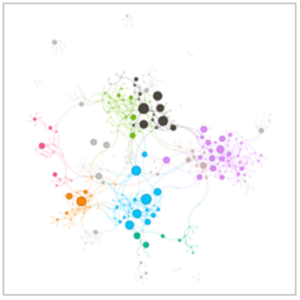In light of the Government’s reorganisation of the NHS, Mark Outhwaite, former NHS CEO and Principal Associate at Ethical, shares why we need to recognise and mitigate the impact on organisational and system networks, if real improvement is to be realised.
The Magic Roundabout of organisational change in the NHS gives another lurch. The centre of the NHS is being reorganised – again. The question is whether those leading this latest round of changes have truly absorbed the critical lessons from past transitions. As the NHS’ history of organisational shifts demonstrates, reorganisations often under-deliver due to persistent optimism bias – the expectation that structural change alone will achieve transformational results. A critical part of this is the failure to understand and plan for the impact on the complex network of trusted relationships that have evolved outside the visible hierarchies and to give sufficient attention to creating the context for healing those networks and supporting new ones to evolve.
Lessons from past reorganisations
Research has repeatedly highlighted the pitfalls of reorganisations within the NHS. Nuffield Trust’s report, Doomed to Repeat, is particularly clear:
“Even very controversial or high-profile reorganisations seem to have had less actual impact on front-line services than people expected. Policymakers need to weigh the disruption of reorganisation against the benefits, and consider that other factors like staffing and culture are more important than the organisational architecture of the NHS.”
Integrated Care Boards (ICBs), now under pressure from significant budget reductions, face potential mergers. Meanwhile, the Department for Health and Social Care (DHSC) is likely to recreate an intermediate tier of governance, potentially echoing the old Regional Health Authorities. These shifts represent political intentions rather than improvements proven to benefit patient care.
Visible structures, Invisible networks
Most reorganisation efforts inevitably focus on the visible elements – departments, teams, roles – that are being removed, relocated, or merged. However, The hidden costs of reorganisation lie in the disruption of formal and informal networks, both within the organisation and, often more importantly, across the ecosystems within which they operate. They are the critical, yet often overlooked, assets of NHS organisations.
Formal and informal networks – trusted relationships built over years – are the conduits for innovation, rapid problem-solving, and efficient knowledge transfer. These networks represent communities of shared interest and purpose, fuelled by emotional investment and discretionary effort. They provide crucial, trusted avenues for advice, support, and knowledge exchange.

The evidence: networks matter
Substantial evidence highlights the critical role that well-managed social networks play in organisational success. For instance, research by Cross and Parker (2004) alongside many other studies shows a strong correlation between robust internal networks and improved organisational performance. Such networks build ‘Social Capital’, underpinning collaboration, agility, and resilience within complex organisations like the NHS.
The hidden costs of disruption
When reorganisations uproot staff, encourage redundancy, or require individuals to shift roles and locations, they disrupt established relationships. Long before organisational charts officially change, the networks begin to unravel. The result is immediate distress and uncertainty transmitted throughout the system, undermining morale, weakening trust, and diminishing effectiveness.
The disruption disrupts personal and organisational knowledge, often temporarily but sometimes permanently. Networks develop at the speed of trust, and trust takes considerable time to rebuild. This often-hidden aspect may explain why reorganisations rarely achieve their promised benefits within optimistic planning horizons.
Conclusion: Networks, reorganisation and the speed of trust
The lesson for NHS leaders is clear: underestimate the value and vulnerability of organisational and system-wide networks at your peril. Genuine change and sustained improvement occur at the speed of trust—and rebuilding trust, and the networks that depend upon it, inevitably takes far longer than planners anticipate. As NHS England transitions once again, recognising and mitigating the impact on organisational and system networks must become central to the strategy if real improvement is to be realised.
—
Mark is Ethical Healthcare’s Principal Associate for Organisational Development and Leadership, specialising in Organisational Social Network Analysis. This method maps and analyses relationships, communication, and influence within an organisation across systems and existing networks, helping to enhance collaboration, decision-making, and performance.
To learn more, contact Mark at Mark@ethicalhealthcare.org.uk
